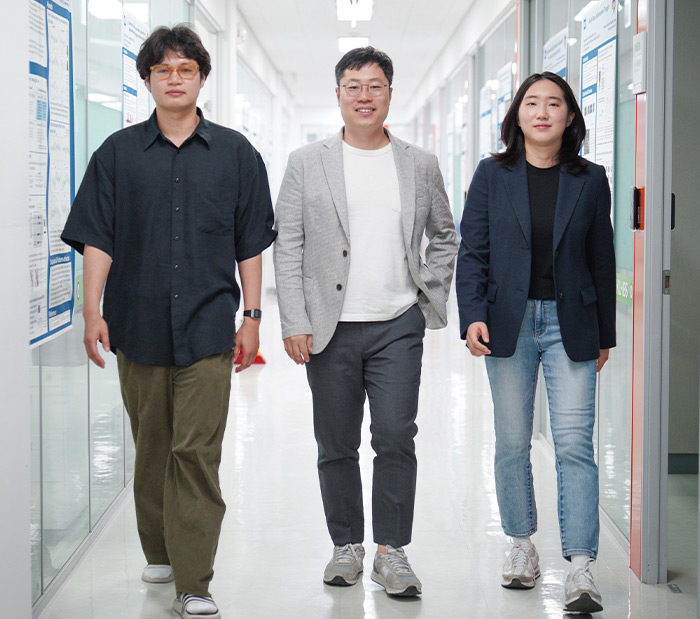Research Stories
IBS Center for Neuroscience Imaging Research develops a predictive model of rumination based on fMRI
Development of a rumination prediction model based on resting state brain images using machine learning
The brain-based predictive model demonstrated its effectiveness in predicting the severity of depression in depression patients
Biomedical Engineering
Prof.
WOO, CHOONG-WAN
Jungwoo Kim, a doctoral student at Sungkyunkwan University
"Rumination" refers to the state characterized by preoccupation with a specific thought or emotion. It resembles a cow chewing its cud repeatedly, as we "ruminate" over certain thoughts or feelings. Often, this involves incessant dwelling on negative situations, problems, or worries. This repetitive pattern of thought and fixation on negative emotions can contribute to mental health conditions such as depression or anxiety. Thus, researchers have recognized rumination as a significant risk factor for depression.
The tendency for rumination varies among individuals. It has been hypothesized that this individual difference of rumination is associated with the unique brain connectivity patterns of each person, although this has not been clearly elucidated. To address this, Prof. Choong-Wan Woo's research team from the Department of Global Biomedical Engineering at Sungkyunkwan University, in collaboration with Prof. Tor Wager's research team developed a predictive model rumination. They applied machine learning to functional magnetic resonance imaging (fMRI) data obtained from healthy individuals during rest. The brain-based predictive model demonstrated its effectiveness in predicting the severity of depression in depression patients as well. Importantly, this study revealed the significant role of the dorsomedial prefrontal cortex within the default mode network in predicting the level of rumination.
"The pattern of thought flow during rest reflect important aspect of our mind, and this study shows that the tendency to think negatively can be decoded from brain connectivity," said Prof. Choong-Wan Woo, who led the study. “As these findings build, we hope to use brain imaging to monitor and manage mental health in the future."
The first author of this study, Jungwoo Kim, a doctoral student at Sungkyunkwan University, stated, "This study is clinically and scientifically significant as it demonstrates which brain regions and their connectivity underlie individual differences in the process of rumination."
This research was supported by the Institute for Basic Science (IBS-R015-D1), the National Research Foundation of Korea (2019R1C1C1004512), and BrainKorea21 Four.
This study was published on June 15, 2023 in the world-renowned journal Nature Communications (IF 17.694).


